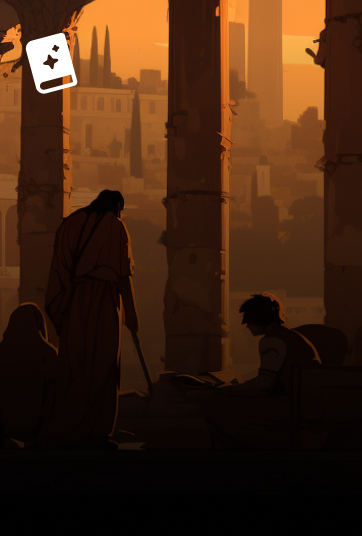

Midnight in Chernobyl
The Untold Story of the World's Greatest Nuclear Disaster
Ratings58
Average rating4.5
Journalist Adam Higginbotham’s definitive, years-in-the-making account of the Chernobyl nuclear power plant disaster—and a powerful investigation into how propaganda, secrecy, and myth have obscured the true story of one of the twentieth century’s greatest disasters.
Early in the morning of April 26, 1986, Reactor Number Four of the Chernobyl Atomic Energy Station exploded, triggering history’s worst nuclear disaster. In the thirty years since then, Chernobyl has become lodged in the collective nightmares of the world: shorthand for the spectral horrors of radiation poisoning, for a dangerous technology slipping its leash, for ecological fragility, and for what can happen when a dishonest and careless state endangers its citizens and the entire world. But the real story of the accident, clouded from the beginning by secrecy, propaganda, and misinformation, has long remained in dispute.
Drawing on hundreds of hours of interviews conducted over the course of more than ten years, as well as letters, unpublished memoirs, and documents from recently-declassified archives, Adam Higginbotham has written a harrowing and compelling narrative which brings the disaster to life through the eyes of the men and women who witnessed it firsthand. The result is a masterful nonfiction thriller, and the definitive account of an event that changed history: a story that is more complex, more human, and more terrifying than the Soviet myth.
Midnight in Chernobyl is an indelible portrait of one of the great disasters of the twentieth century, of human resilience and ingenuity, and the lessons learned when mankind seeks to bend the natural world to his will—lessons which, in the face of climate change and other threats, remain not just vital but necessary.
source: https://www.simonandschuster.com/books/Midnight-in-Chernobyl/Adam-Higginbotham/9781501134647
Reviews
Popular Reviews
Reviews with the most likes.
I picked this up after watching the HBO series Chernobyl and being so fascinated I wanted to know more. This book does an excellent job of giving the details and the real facts, filling in and correcting the condensed and dramatized version from the TV show.
For a fairly long book filled with facts, this does an amazing job of telling a relatable, human story. The context about Soviet nuclear history and ambitions, the political influences, and the historical forces were illuminating. The personal stories underlined the danger and the costs, but also demonstrated the resiliency of so many of those affected. Most compelling was the illustration of the blame/cover-up culture that was the true genesis for every thread of cause, from the design of the reactor, to the actions of the controllers, to the horrifying lag in understanding what had happened.
At times this did devolve a bit into a numbing litany of names and numbers. Sometimes people are introduced who disappear after one paragraph, while others are introduced in similar ways and wind up being key players. The information about the levels of radiation were usually gripping; the catalog of building materials and dimensions as the containment was built were less so.
But that's a small gripe - this is riveting and dramatic. It tells the systemic, scientific, and human stories well. It even acknowledges the threat of radiophobia (the number of people killed and injured by conventional coal plants is far greater than victims of nuclear incidents) and some hope for a future that better balances risk through scientific advances and refocusing away from nuclear weapons.
Holy cow that was fascinating. After watching the HBO show, I've been watching and reading about the Chernobyl incident, and Higginbotham's book is an amazing telling. He goes into the background of nuclear energy in the USSR, what happened at Chernobyl, the aftermath, plus interviews with survivors (including Bryukhanov), etc. Really well done and highly recommended.
“Satan sleeps beside the Pripyat.”
I knew of the Chernobyl disaster, but this book showed I didn't know nearly as much as I thought I did. Well researched, well told, it read like a thriller with the play-by-play of a biography or memoir. I really appreciated the history and backstory behind the disaster, because I think a lot of what went on could be blamed on the Soviet-era hubris at the time and the willingness to overlook pesky things like safety measures and proper construction to save perceived face on a global scale.
I also really liked the structure of the book as a whole, where each chapter was dedicated to one part of what ends up being a very complex whole. It does seem to jump around a bit, particularly in the beginning, but with each chapter focused on a particular topic related to the disaster I feel like it was necessary to get the whole story. Chapter highlights for me included the 6 chapters dedicated to the day of and days following the event, discussion on The China Syndrome, Inside Hospital Number Six, and The Elephant's Foot. There's some really great stuff in this book.
Highly recommend to anyone interested in reading about this catastrophic event, or if you're looking for a good, gripping nonfiction book.
Top Prompts
Featured Prompt
2,773 books#2773 in What are your favorite books of all time?
When you think back on every book you've ever read, what are some of your favorites? These can be from any time of your life – books that resonated with you as a kid, ones that shaped your personal...
































